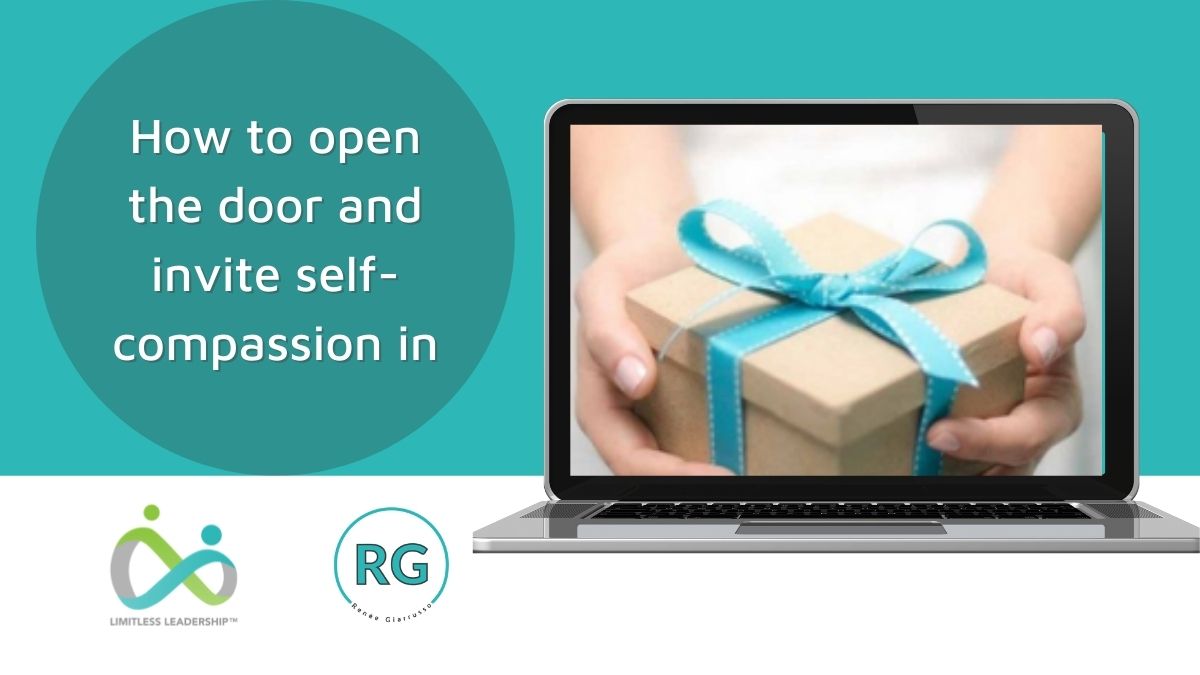Now, more than ever, in this ever-changing world full of uncertainty, we need to ramp up our self-leadership and to do this, we need to open the door to self-compassion. One way to do this is to be receptive and open to acceptance; we need to open the door and invite self-compassion in to accept the gifts we face. Self-compassion researcher Kristin Neff highlights its many benefits, including a decrease in anxiety, stress and depression, and an increase in life satisfaction, resilience and overall happiness.
In the past, a close friend threw me under a bus to protect herself from having to take the blame for something. We had grown up together and the situation, plus the fact that she never apologised, really played on me. I realised that even if the threads of our friendship were salvaged, our values didn’t align anymore. Although we speak in passing and there is no animosity, things will never be the same.
I used a three-step process called CAN – to get through this situation because I recognised that my self-compassion needed to be ramped up. CAN opens the door to what is possible when you focus on self-acceptance or self-compassion. The CAN process employs ‘illeism’ – the act of referring to oneself in the third person. Studies have shown that when people use illeism to talk about traumatic events or challenges, they tend to regard themselves through more compassionate eyes. This disassociation is useful in diluting the pain. CAN works like this:
C – Confess – Own up to the pain or event. What is happening?
This is where you need to clearly state the pain or challenge you are facing.
‘Renée is feeling hurt and hard done by.’
A – Align – Who else may feel this or be experiencing this?
When we associate what we are going through as a common, shared experience, we tend to feel more settled and calm. It’s almost like this soothes us and gets us to focus our attention outward. It is known that our brain’s social-care circuit primes itself with oxytocin in social situations that make us feel supported and connected with others. ‘Renée is not the only one experiencing this. Many people feel hurt and have gone through a similar experience.’
N – Nourish – What can I do or think that will serve me resourcefully?
By reassuring yourself in the third person, you offer yourself useful advice. At this stage, you could even come up with an affirmation. In the scenario I’ve shared, I only have to remind myself of how many amazing people I have in my life to remember the compassion and respect I have for myself, which dictates who I let into my life.
‘Renée has been through harder things. Time heals all and she just needs to focus on the amazing people in her life.‘
To resist or embrace?
Once we have harnessed self-compassion, we have a choice. Do we embrace the positive or challenging experience and accept it, or do we resist and fight against it?
The model shows the choices we all have access to, in order to embrace or resist the experiences we go through from a people or situational perspective.

Maybe you have experienced success such as turning your side hustle into a lucrative enterprise. You may feel embarrassed, almost egotistical, to share your story, so you resist sharing the experience and what, and who, helped you get there. It is important to remember that we resist sharing not only challenges but also successes – and this can hinder us.
Embracing positive people and situations can lead to our life’s highlights. On the flip side, if we resist or repel the experience or person we can feel helpless, and this can hinder us as outlined in the diagram. Resisting can make the situation even more painful and exhausting. Imagine playing a game of tug of war: you are gripping on to the rope not wanting to let go, and at the same time not getting anywhere. The rope burn is excruciating but you keep holding on, hoping at some point the pressure will give way.
When we choose to embrace and accept the experiences we glean through people and situations, we can harness this in a way that’s helpful and serves us and potentially others in moving on. When we resist challenging experiences and lessons, we fall into helplessness and our growth is hindered.
Lead to be Limitless…


